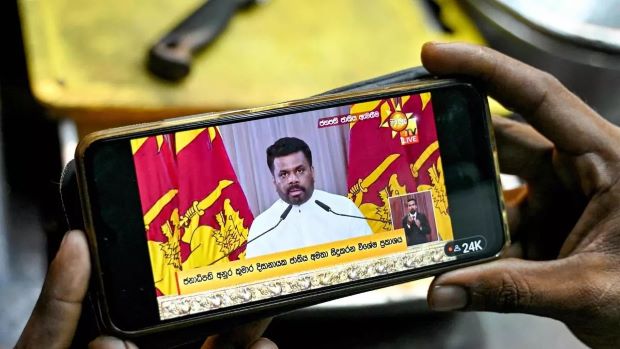Sri Lankan activists seek justice, unity and economic progress
COLOMBO – Sri Lankan activists have urged the leftist coalition government to address issues of justice, reconciliation and economic recovery on a priority basis following its landslide victory in the general election.
The leftist coalition bagged 159 out of a total of 225 seats up for grabs in the parliamentary election on Nov. 15.
The National Peace Council (NPC), an independent and non-partisan organization dedicated to promoting a negotiated political solution to the nation’s longstanding ethnic conflict called on the government to promote national unity.
It also called on the current President Anura Kumara Dissanayake to take effective measures in all regions including those inhabited by ethnic and religious minorities to ensure justice and reconciliation.
Dissanayake became the nation’s first leftist president after winning the election on Sept. 21 with 42% votes.
“This support is a sign that the president’s leadership has successfully bridged ethnic and religious divides,” the group said in a statement on Nov. 18.
The NPC said that the failure of political parties representing minority interests to achieve significant results over the past decades has alienated the electorate. It is largely due to these negative factors that minority voters have moved away from supporting these parties.
“A solution to the ethnic conflict would be welcomed not only by the ethnic and religious minorities within the country but also by those in the international community, particularly India, which has long advocated for a resolution as beneficial for both Sri Lanka and India,” said NPC.
Following the election, a diverse group of candidates, including Tamils, Muslims, Christians, tea workers, and a representative for the visually impaired, were elected to parliament. On Nov. 18, President Dissanayake appointed a 21-member cabinet of experts.
Emilini Sera, a Catholic university student who joined the mass protests that ousted the former strongman president Gotabaya Rajapaksa in July 2022, said that ethnicity-based politics, which has long influenced the country’s history, remains a divisive force that obstructs national unity, sustainable development, and lasting peace.
“Overcoming this form of politics is crucial for Sri Lanka’s advancement toward a united, prosperous, and peaceful society. The government should begin drafting a new constitution that supports all minority ethnic and religious groups, ensuring equal rights and preventing future conflicts among communities,” she said.
Sri Lanka’s ethnic divide between the Sinhalese majority and Tamil minority led to three decades of deadly civil war that left tens of thousands dead. The war ended in 2009, but the division is still rife and continues to influence politics, observers say.
“The lingering wounds from the conflict are still deep, with many political figures continuing to exploit these divisions to preserve their power,” said Sera, a Tamil.
She said this has fuelled recurring ethnic tensions, exacerbated by political leaders’ divisive rhetoric, turning the political landscape into a battleground for ethnic identities instead of fostering dialogue and reconciliation.
A Colombo-based Catholic nun from the Holy Family congregation said that divisive politics undermines the development of a unified national identity, as voters often prioritize ethnicity over key issues like education, healthcare, and economic progress.
Thus, elections often turn into contests of ethnic loyalty rather than policy debates, which weakens the foundation of democracy, the nun said on condition of anonymity.
“Bridging ethnic and religious divisions is essential for Sri Lanka to overcome its economic crisis and establish lasting social and religious harmony. Only through unity and mutual respect can we address the nation’s challenges and build a prosperous, peaceful future for all communities,” she said.
The nation’s estimated 22 million people plunged into the worst economic crisis in its history in 2022 after the country became bankrupt, triggering massive nationwide protests and forcing the ouster of the powerful Gotabaya dynasty who ruled for decades.
– ucanews.com



Comments are closed, but trackbacks and pingbacks are open.